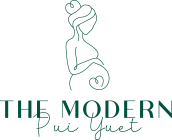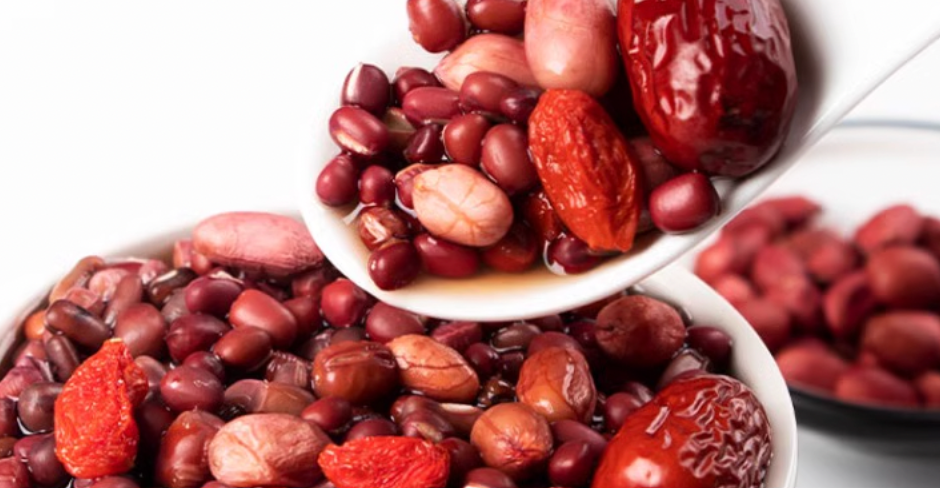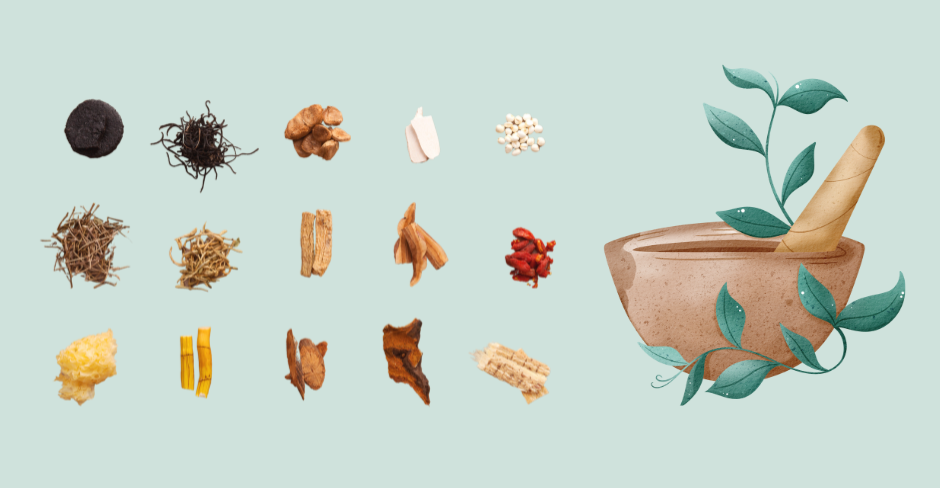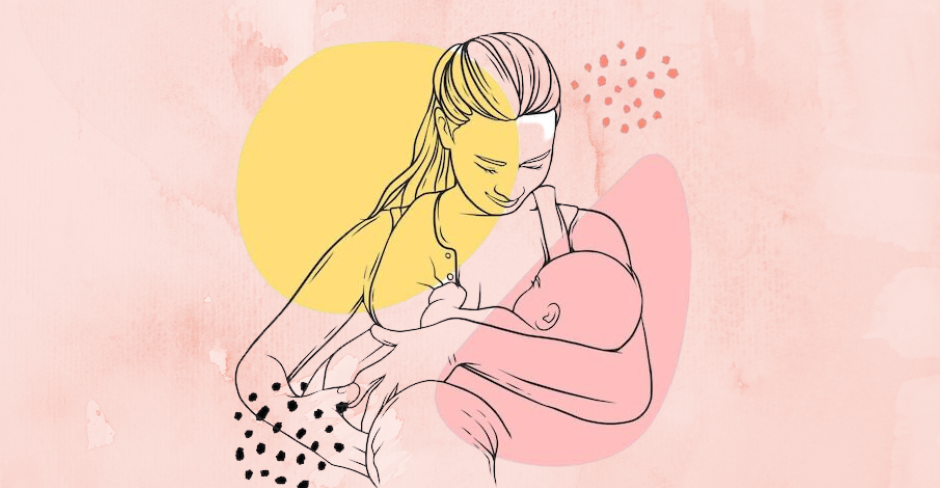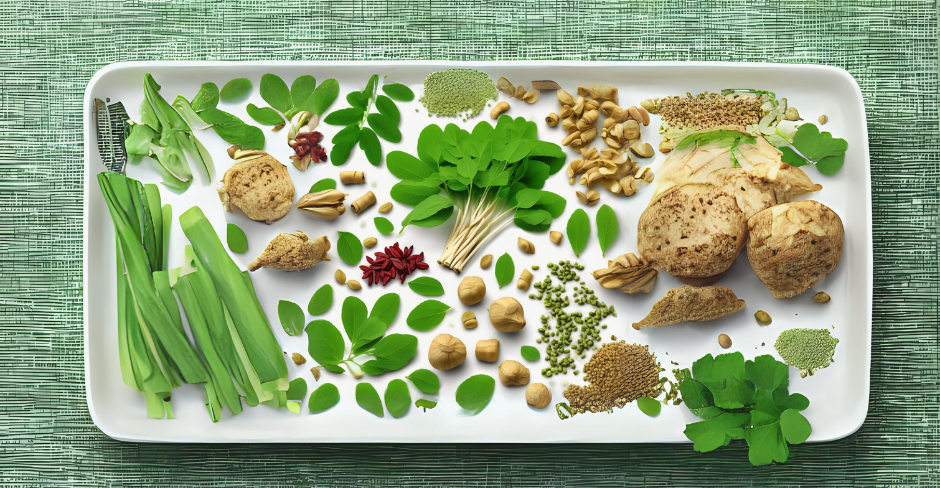

Hormone Balancing
26th Aug 2022
7 mins read
Our bodies go through a multitude of changes whilst pregnant and when preparing for birth. Hormones, play a huge role in this process. The Modern Pui Yuet has broken it down for you so it’s a bit easier to understand and navigate.
Progesterone Levels Drop
One of the most common hormonal shifts that women experience which tends to cause unwanted symptoms postpartum is estrogen dominance. Whilst being pregnant, progesterone levels rise significantly to prepare our endometrium to feed our growing fetuses. As long as there is a proper balance between progesterone and estrogen, our bodies remain in equilibrium and are ‘well-balanced’.
As soon we give birth to our placentas, our progesterone levels plummet back down to what they were pre-pregnancy, as our estrogen levels remain high. Progesterone is known for its calming, mood-elevating effects, so when such a dramatic drop happens in this hormone, it can cause mood shifts that range from baby blues, to the full-on postpartum depression that we hear so much about.
Estrogen Dominance
Our hormones usually stabilize within the first couple of weeks, however if our estrogen levels continue to stay high in relation to progesterone (very common due to our exposure to estrogen-disrupting xenoestrogens like BPA and phthalates, as well as birth control, alcohol and outside sources that are taxing on our livers) you’ll experience estrogen dominance symptoms such as insomnia, mood swings, depression, irritability, brain fog, fatigue, water retention, headaches and bloating.
Hypothyroidism
Estrogen dominance may also cause our livers to produce excess thyroid-binding globulin, which binds our thyroid hormones so it is unable to be used properly in our bodies. This often results in low thyroid function after birth as well as postpartum adrenal fatigue. Common symptoms of low-thyroid function or hypothyroidism include fatigue, constipation, weight gain (or inability to lose weight), dry skin, high heart rate, hair loss or brittle hair, tremors and cold intolerance.
Bottomline
Most of the postpartum symptoms women commonly experience are due to an imabalance of estrogen in relation to progesterone (estrogen dominance), underactive thyroid and adrenal fatigue. Make sure to visit your GP if you experience any of the symptoms mentioned above and continue reading for useful tips to feel your best and how-tos on naturally balancing your hormones postpartum.
9 TIPS ON NATURALLY BALANCING YOUR HORMONES POSTPARTUM
1. Consume plenty of nourishing foods
When we’re pregnant, our bodies prioritize nutrients we consume to feed our growing babies, making it a likely occurrence that we can easily be depleted ourselves. If you’ve had a vaginal birth, you’re likely to lose additional nutrients (especially iron) due to blood loss. Factor in all of the nutrients it requires to nurse and keep up your milk supply (500+ additional calories per day) and you’re looking at a recipe for nutritional deficiencies, which is one of the biggest contributors to hormonal imbalances. In saying this, one of the most impactful action steps we can take to balance our hormones postpartum is to replete and rebuild our micro and macronutrients (the building blocks of our hormones). Some nutrient-rich sources to include are organ meats or liver (sounds horrible but incredibly nutrient-dense), bone broth, grass-fed meats (especially red meat), healthy fats like eggs, avocado, salmon, extra virgin olive oil, ghee, nuts, seeds etc. and complex carbs like rice, oats, legumes, as well as plenty of leafy greens and citrus (rich in vit-c that helps us absorb iron).
Take action:
It can be incredibly hard to want to cook post-giving birth, especially in those first few weeks. The Modern Pui Yuet’s care packs and products are a simple DIY solution to ensure those nutrients are being replenished. Other than that, stock up on foods and make sure freezer-friendly options prior. Some nourishing and delicious postpartum recipes you can share with your family and loved ones (or make ahead) can be downloaded on our free e-guide here.
2. Supplement wisely
Since nutrient depletion is so common during the first few months postpartum, after prioritizing nutrient-dense food, it’s super important to fill in the gaps with supplements. Booking in a simple blood test with your GP can help you determine a targeted approach, but in general, the most common nutritional deficiencies postpartum include iron, b-vitamins (especially folate and b-12), and vitamin. Additionally, it’s important to boost up your intake of DHA (omega-3 fatty acid which is crucial for nutrient-dense breast milk) choline (important for baby’s brain development), probiotics (especially helpful at balancing & restoring your gut microbiome if you had a c-section) calcium, magnesium and trace minerals, which will help to balance hormones and optimize your baby’s health (if direct nursing).
Take action:
Ensure you’re incorporating a good multi-vitamin, often your doctor will recommend to continue your daily prenatals, as well as a DHA supplement and trace minerals. Please discuss with your licensed medical practitioner before taking.
3. Hydrate, hydrate, hydrate!
You need even MORE water whilst nursing than you did during your pregnancy! Breast milk is made up of 90{e942e0760fd82d9d370b348c2a36bedaa61ae77ea23faa700f31e68fd55d4104} water. Experts recommend about 128oz per day or 4x30 litre water bottles. Not only will hydrating make sure you can keep your milk supply up, it will also do wonders for your hormones, working to mitigate headaches, offset fatigue or brain fog, improve digestion, and flush out toxins and waste (important for alleviating constipation which may lead to estrogen dominance).
Take action:
Buy a reusable water bottle and ensure it is always at an arms-length and filled up throughout the day. If you don’t usually enjoy drinking water or if it doesn’t come naturally to you, enhance it with slices of lemon, ginger or fresh mint. Coconut water is also another great hydration choice for electrolytes.
4. Get those zzz’s in…
Yes, this is difficult, especially when you’ve got a newborn waking you up at all hours of the night, it’s crucial during this phase to prioritize rest and sleep whenever and wherever possible. This doesn’t just regulate hormones (including stress hormone cortisol, hunger hormone ghrelin, sleep hormone melatonin and satiation hormone leptin) but getting those snoozes in will help to keep pressure off your pelvic floor, assisting the healing process and minimizing postpartum bleeding.
Take action:
Delegate whatever you can (ask your partner, friends, family to cook meals, clean etc.) especially during the first few weeks. Set boundaries where needed (visiting hours) and resist the urge to overdo it. Rest is a key and crucial part of our recovery, it can make all the difference in our hormone and postnatal health down the road.
5. Loading up on iron
Postpartum iron deficiency is common due to pregnancy-induced anaemia and blood loss during birth – especially if you’ve had a vaginal birth. This can be detrimental to your hormones as iron is crucial for thyroid function. This can contribute to a stale metabolism, mood and energy.
Take action:
Booking in and taking a simple blood test can be a great indicator of where your levels are at and if you need supplemental support. As always, the best way to incorporate this is through whole, real foods, especially grass-fed red meat (bison, beef, buffalo), organ meats (liver), legumes, leafy greens and eggs.
6. Go for Infrared Sauna
Whilst this sauna talk may seem like a luxury a new mama may not have time for, one session can provide a plethora of health benefits, including releasing endorphins and other super positive neurotransmitters in our brains, helping to combat anxiety, depression and alleviate postpartum mood symptoms. As we’re advised not to exercise for the first six weeks postpartum, it’s a safe bet way to work up a sweat, helping us to expel toxin accumulation which can negatively impact our hormone and liver health.
Take action:
Whilst theres a ton of research to back up the health benefits, there’s little to none as it relates to breastfeeding and milk supply. Some GPs recommend the pump & dump technique as saunas can cause you to detox and toxins can be excreted via milk glands, whilst others say to limit use if milk supply is low. Consult with your GP first before trying a session to see how you feel.
7. Check your thyroid
An underactive thyroid or hypothyroidism is a common postpartum hormone imbalance, causing symptoms of fatigue, hair loss, weight gain (stubborn weight loss), cold feet or hands, brain fog, dry skin, constipation, and heavy or irregular periods. In saying this, it is important to support your thyroid by following the steps in this post (especially since it relates to food and supplements) and getting a full thyroid blood test panel done by your GP to identify if you need additional help.
Take action:
Look into getting a blood test with a full thyroid panel done by a licensed doctor or hormone health specialist. They tend to use the most optimal biomarkers (i.e thyroid health is thriving not just ‘surviving’). Ensure the panel includes Total and Free T4, TSH, Total and Free T3, Reverse T3, Anti-TPO and Anti-thyroglobulin.
8. Try Massage/Acupuncture
Extensive studies show that massage reduces the production of cortisol – the stress hormone as well as balancing neurotransmitters serotonin and dopamine, which are linked to depression, whilst research shows that acupuncture helps to balance hormones and even increase your milk supply. Both are relaxing and can help you sneak in some much needed zzzs.
Take action:
If you’re not able or feeling up to leaving the house, The Modern Pui Yuet has a directory of superb wellness practitioners that will come to you, click here to see what we have to offer and how to book in different services.
8. Try Massage/Acupuncture
Extensive studies show that massage reduces the production of cortisol – the stress hormone as well as balancing neurotransmitters serotonin and dopamine, which are linked to depression, whilst research shows that acupuncture helps to balance hormones and even increase your milk supply. Both are relaxing and can help you sneak in some much needed zzzs.
Take action:
If you’re not able or feeling up to leaving the house, The Modern Pui Yuet has a directory of superb wellness practitioners that will come to you, click here to see what we have to offer and how to book in different services.
9. Take a walk
Exercise is not advised in the first six weeks postpartum, however low-impact movement like walking is encouraged once you feel up to it. Numerous studies have shown that being out in nature (even as little as 10-15 minutes per day) assists to boost circulation which is needed for proper detoxification, regulation of our cicadian rhythm needed for restful sleep, improvement in our immune systems and reducing the production of cortisol – the stress hormone.
Take action:
Depending on the type of birth you had, you may not feel like walking for a while and that’s totally okay! It’s important to go at your own pace and do what feels right for you and your body. When you do feel ready, start small and steady, work your way up to longer walks as you continue to heal.
POSTPARTUM HORMONE BALANCING CONCLUSION
As a new mother, prioritizing your wellbeing, rest and self-care during those first few months postpartum has a huge impact on your healing and recovery, working to balance your hormones and optimize your overall health. Try any of the simple steps listed in this blog post to support you on your path, consult your GP and above all, always check in with yourself and listen to what your body needs. You got this!


Written by
